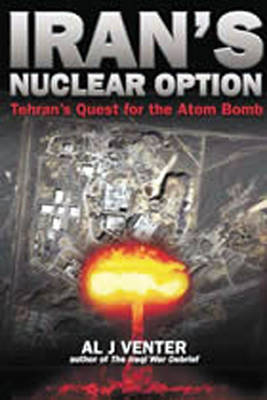The United States remains convinced that Tehran has been pursuing a clandestine nuclear weapons program. As one observer noted, "following some pretty intrusive detective work by the International Atomic Energy Agency (IAEA) in late 2003 and early 2004, everything points to Iran acquiring nuclear weapons parity within the next few years." The consensus within the nuclear club is that that target is likely to be reached sooner rather than later. That revelation emerged in October 2003 when Tehran - after almost a year in denial following ever more thorough inspections by the IAEA - admitted that it had secretly been producing small quantities of weapons-grade uranium as well as plutonium. Although Tehran initially agreed to allow inspections by the IAEA it then reneged a few weeks later. What is clear, said The Washington Post at the time, is that the world now faces its own Iranian deadline. Jerusalem has already hinted that if the West allows a similar situation to develop in Iran as the international community faced in Iraq prior to 'Operation Iraqi Freedom', then it might be forced to act unilaterally. As one Knesset member phrased it, "we need to stop the rot."
Al Venter, the author of The Iraqi War Debrief: Why Saddam Hussein Was Toppled deals with Hizbollah, an Iranian surrogate terror group that has tentacles stretching well beyond the eastern Mediterranean and, by inference, with al-Qaeda. The question now facing observers in the West is how much more of this kind of nuclear proliferation has been secreted by Tehran's mullahs. Al Venter is available for interview.
- ISBN10 161200086X
- ISBN13 9781612000862
- Publish Date 19 January 2005
- Publish Status Active
- Publish Country US
- Imprint Casemate Publishers
- Format eBook
- Pages 256
- Language English
